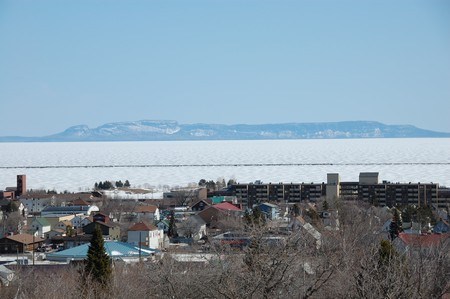THUNDER BAY -- The city-funded Civic Pride Task Force has a tough road ahead, if Mayor Keith Hobbs is correct in his thinking.
The group has been charged with reinvigorating pride in community too often divided on geographical boundaries, harking back to a bygone era when Thunder Bay was two separate cities.
Led by SHIFT executive Peter Marchl, the task force has been collecting video testimonials, is in the planning stages of a website and ad campaign and ultimately intend to create a series of 50 vignettes by 2020, culminating in the city’s 50th anniversary celebrations in 2020.
With the assistance of $12,000 from city coffers – and a requested $12,000 more in 2017 - they’ll also launch a civic pride campaign in April during Civic Pride Month.
Hobbs, long a booster of all things Thunder Bay, isn’t sure the public will buy into the premise. Those boundaries are too ingrained, even five decades later.
“How do you instill civic pride when people still can’t get past Port Arthur and Fort William?” Hobbs asked during a presentation to council on Monday night. “It’s pathetic. People need to get past it. It’s going to be 50 years in 2020. It’s time to move on and call it Thunder Bay.”
And he’s not the only skeptic. Add At-large Coun. Rebecca Johnson to the list of doubters.
“You can’t create it. You can try, but it comes from individuals,” Johnson said.
No one is saying it’s going to be easy, Marchl said.
On the one hand, task force must foster pride in the city as a whole.
“Basically we’re trying to have a set plan in place where we can actually try to elicit that feeling in the city,” Marchl said. “There are a lot of great things going on in the city, so it’s identifying what they are, compiling them and then celebrating them, trying to basically promote the city.
“It’s trying to make citizens feel like they’re proud of the city and give them a reason for it.”
On the other hand, the want to celebrate individual neighourhoods, hosting events that allow people show pride in their immediate surroundings, and more importantly, meet their neighbours, a dying art these days.
“It’s basically holding events that elicit the civic pride feeling,” Marchl said. “They have a few dollars for each ward and you have a street party.”
He pointed to the now discontinued Open Streets program as an example that brought people together as one that could be brought back to foster civic pride as well as a program encouraging people from afar to visit friends and relatives.
